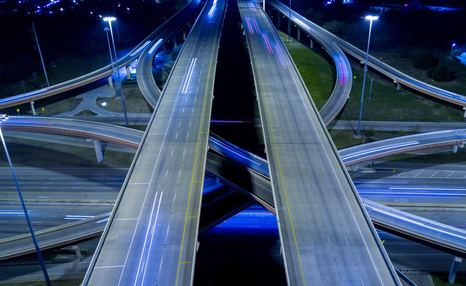 Err. Guys? Which way are we going? I'll just be hanging back then... Err. Guys? Which way are we going? I'll just be hanging back then... Do you find that sometimes you just don't want to have to decide where to go today, what to do, eat or buy? You wish someone else would come up with the plans and not ask your advice or opinion on each tiny detail? You're not alone and probably have a form of decision fatigue. Having to constantly choose from a huge range of options or for long periods of time reduces your ability to make good choices as well as introduces a lot of stress in your life. But fear not, there are mitigating strategies you can adopt. It's both a blessing and a curse that we now have more options available to us in our free time, options around eating, travel, tv, dating, pensions, soft furnishings, utilities. But strangely enough, even though it flies against intuition, the more choices we have the more unhappy we become. This is because the very act of having to analyse and choose introduces fear. When there are lots of choices to consider, we tend to imagine the attractive features of alternatives that we rejected and subsequently become less satisfied with the alternative we plumped for. We can end up stressed because of regret, self-blame and imagine all those other outcomes and lost opportunities which may have actually brought us more happiness. Of course, it's all an illusion because it's all imagined, but it doesn't stop it irritating us.  Some junctions are the stuff of nightmares Some junctions are the stuff of nightmares Take IKEA. That place drives me mad. It's not that it sells complete tat, it does have some useful things, it's just the whole experience. The endless rows of repurposed chipboard, storage solutions and small soft toys strategically placed to be ready to give to a child at the point where it's estimated by psychologists they will have a meltdown. How many different types of candles can you imagine? Ikea will have more. Just look at the white, ashen faces of those who are dragged there for their opinion, to help alleviate the 'initiator' of the visit with the burden of choice. They want just any small indication that you liked the vomit green throw over the septic yellow one so they can make the choice and get out of there. But no, that's too risky because later there may be regret and blame will be abundant. Best keep quiet. Not only is having to choose from an almost unlimited amount of options very stressful, having to make a lot of volume of decisions in the day affects the quality of those decisions. It's why judges have been shown to make poorer quality decisions late in the afternoon compared to early in the morning. You're more likely to make irrational impulse purchases after having had to walk around and work out for the umpteenth time if the 3 for 2 offer is better value than the bulk package purchase of washing powder. That's why they put lots of goodies and sweets on the counter by the checkout - it's not only because you're hanging around there, it's also because you're an easier target by this time and more prone to impulse. So, what can we do about this? It is possible to reduce the pain but you'll need to consciously adopt a decision making strategy and become what Herbert Simon, an economist and political scientist, called a 'Satisficer'. The term is a portmanteau of 'satisfy' and 'suffice' and was coined by Simon in his book, Administrative Behaviour. It basically refers to those people who opt for what is good enough rather than get confused and slowed down by 'analysis paralysis' from too much thinking. How it works is through your adopting 'bounded rationality'. You can limit your research of options and search through the available ones until an acceptability threshold is met. This could be time bound or limited by your ability to fully comprehend the details of all the options. So instead of spending an hour looking at every single fluffy toy in IKEA you would give yourself one minute to look at just the first or second basket and then make your choice. Or if you have a hundred different pension plans to consider and you can't understand the complicated ones, you'd chose from those you do understand. I recently decided to buy a new bike. I'm not a mechanic and I don't know much about certain brands so I limited my choices to those I was familiar with. I adopted a bounded rationality. Simply put, it is not rational or possible for me to learn about all the options on all the bikes as well as experience rides on them. So you got to go with what you know. Sure, a bit of research is fine, but time limit it. Most importantly though, you must not revisit the decision later but be satisfied you did the best you could in the time you were happy to give over to the task. You have to understand completely that an optimum decision can NEVER be made when there are so many options and permutations. You will not choose the best chutney on the shelf, the best route for your country hike or the best bike boots in the world. Be happy with the one you got. So, when you're next out riding or in a car journey with someone and you're asked to pick a route, consider the bounded rationality strategy. You perhaps don't know whether taking the A21 in preference to the A26 will result in a more enjoyable journey, or ignoring them both and going down the B2099 is the better option even if slightly slower. So just pick one and then forget about it and enjoy the scenery. If you find yourself on the bike having to make constant micro decisions about whether to turn left or right here because you don't have a destination in mind, just toss a mental coin and go left. Or right. Or straight on. Choose the pretty road you just saw on the left instead of what the satnav is telling you. It'll work itself out eventually and you'll reduce your stress levels. Don't worry about what anyone else thinks behind you, if you're the lead bike just ride as if you're the only one there. If perchance you end up in a housing estate what does it matter anyway? You're on your bike! When you wake up every day, it's like a new birthday: it's a new chance to be great again and make great decisions. - Poo Bear
0 Comments
Leave a Reply. |
archives
April 2023
Categories
All
|
 RSS Feed
RSS Feed